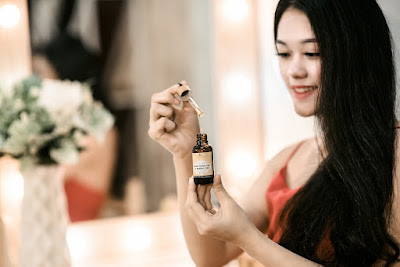7 Effective Methods to Control Excess Facial Oil and Achieve Healthy Skin
Dealing with excess oil on the face can be a challenging issue for many individuals. Excessive facial oil production can lead to acne breakouts, clogged pores, and an overall dull complexion. To combat these problems, it's crucial to learn effective methods for controlling facial oil and maintaining a healthy skin balance. In this article, we will explore seven proven ways to overcome excess oil on the face and achieve radiant, oil-free skin. Let's get begun with the total instructional exercise underneath.
7 Effective Methods to Control Excess Facial Oil and Achieve Healthy Skin
Understanding Excessive Facial Oil
Excessive facial oil, also known as sebum, can result in oily skin. Sebum could be a actually happening fabric generated by the sebaceous organs that helps within the moisturization and assurance of the skin. However, when the sebaceous glands produce an excessive amount of oil, it can lead to oily skin, clogged pores, and various skin issues.
1. Regular Facial Cleansing
One of the most effective ways to control excess facial oil is by maintaining a regular cleansing routine. Cleanse your face twice a day, in the morning and evening, using a gentle facial cleanser. Avoid cleansers that contain oil or alcohol, as they can stimulate oil production. Be gentle when cleansing your face to avoid irritating the skin and triggering the sebaceous glands to produce more oil.
2. Minimal Use of Cosmetics
If you struggle with oily skin, consider using light makeup for daily wear and minimizing the amount of foundation. Heavy makeup can clog pores and stimulate oil production. Opt for water-based and oil-free or oil-control makeup products that are specifically designed for oily skin.
3. Choose Suitable Products for Your Skin Type
Before purchasing any facial care products, it's important to know your skin type. Using the wrong products can increase oil production and lead to breakouts. Even oily skin types can benefit from using a moisturizer regularly. Look for oil-free moisturizers that are lightweight and non-comedogenic, meaning they won't clog your pores.
4. Protect Your Skin with SPF
Sunscreen is crucial for controlling oil production on the face. Excessive sun exposure can make the skin greasy and acne-prone. Apply a sunscreen with a minimum SPF of 30 that contains titanium dioxide or zinc oxide before going outside. Opt for gel-based sunscreens that are fragrance-free and specifically formulated for oily skin.
5. Limit the Use of Scrub Products
Using products that contain scrubs or exfoliants excessively can lead to dryness and increased oil production. It's important to strike a balance when it comes to exfoliation. Use scrub products once a week in conjunction with your regular skincare routine to maintain supple and healthy facial skin.
6. Blotting Papers for Shine Control
Blotting papers, also known as facial papers, are a great temporary solution for reducing shine caused by excess oil. Simply pat or stick the blotting paper onto oily areas of the face to absorb the oil. Avoid rubbing the paper all over your face, as this can spread acne-causing bacteria. Keep blotting papers handy for quick touch-ups throughout the day.
7. Consult a Dermatologist
If you're struggling to control excess oil on your face, it's advisable to seek professional advice from a dermatologist. A dermatologist can assess your specific skin condition and provide personalized recommendations to manage oil production effectively. Consider scheduling a consultation to address your concerns and receive expert guidance.
Conclusion
Controlling excess facial oil is crucial for achieving healthy and radiant skin. By incorporating these seven effective methods into your skincare routine - including regular cleansing, minimal use of cosmetics, choosing suitable products, protecting your skin with SPF, limiting scrub products, using blotting papers, and consulting a dermatologist when needed - you can successfully overcome excess oil on the face. Remember to embrace a consistent skincare regimen and be patient as you work towards achieving a balanced and oil-free complexion.
